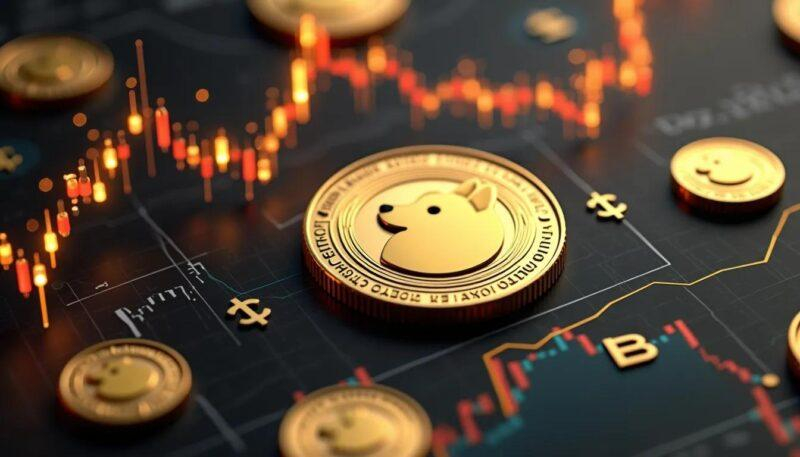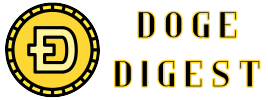In the fast-evolving world of cryptocurrency, Dogecoin has surged from a playful digital token to a serious contender in the investment landscape. As its popularity grows, so does the attention of cybercriminals eager to exploit unsuspecting investors. Securing your Dogecoin holdings is no longer just a smart move-it’s essential. Whether you’re a seasoned trader or a curious newcomer, understanding the best practices for protecting your assets can shield you from potential threats and ensure your investment journey remains smooth and secure. In this article, we delve into top cyber tips designed to help you safeguard your Dogecoin and navigate the digital frontier with confidence.
Understanding the Risks in Dogecoin Investing
Investing in Dogecoin carries inherent uncertainties that every investor should acknowledge before diving in. Its volatile nature stems from rapid market fluctuations influenced heavily by social media trends and celebrity endorsements rather than traditional financial fundamentals. This means prices can skyrocket unexpectedly but just as easily plummet without warning, making it crucial to remain vigilant and informed.
Another risk lies in its technological framework and security vulnerabilities. Being a decentralized digital currency, Dogecoin transactions are irreversible, so any security lapse-like phishing attacks or compromised wallets-can lead to irreversible losses. Investors must prioritize safeguarding their private keys and using trusted platforms to minimize exposure to hacking or scams.
Lastly, regulatory uncertainties also hover over Dogecoin’s future. Governments worldwide continue to evaluate their stance on cryptocurrencies, which can directly impact market accessibility and legality. Understanding these evolving regulations and how they might affect your holdings is essential for maintaining a secure investment strategy.
- Volatility: Driven by hype rather than fundamentals
- Security risks: Focus on protecting private keys and wallets
- Regulatory challenges: Changing laws can impact usage
| Risk Factor | Potential Impact | Recommended Action |
|---|---|---|
| Market Volatility | Rapid price swings | Monitor trends closely |
| Security Breaches | Loss of funds | Use hardware wallets |
| Regulatory Shifts | Restricted access | Stay updated on laws |
Choosing the Right Wallet for Maximum Security
When it comes to storing your Dogecoin, not all wallets offer the same level of protection. Opting for a wallet that balances convenience with robust security measures is crucial. Hardware wallets, for instance, are shielded from online vulnerabilities by keeping your private keys offline. Meanwhile, software wallets offer quick access but must be chosen carefully to avoid malicious attacks. Prioritize wallets that implement multi-factor authentication and open-source code to ensure transparency and reliability.
Understanding the types of wallets available can help you make an informed decision. Consider these popular options:
- Hardware Wallets: Physical devices like Ledger or Trezor, known for top-tier security.
- Desktop Wallets: Installed on your computer, offering control but vulnerable if your device is compromised.
- Mobile Wallets: Convenient on-the-go access but require strong device security.
- Web Wallets: Accessible anywhere via browsers, but entrust your keys to third-party servers.
| Wallet Type | Security Level | Best Use Case |
|---|---|---|
| Hardware | High | Long-term storage |
| Desktop | Medium | Regular trading |
| Mobile | Medium | Daily transactions |
| Web | Low to Medium | Quick access |
Mastering Two Factor Authentication for Your Assets
When it comes to protecting your digital assets, adding an extra layer beyond just a password is non-negotiable. Implementing two factor authentication (2FA) dramatically reduces the risk of unauthorized access by requiring a unique, time-sensitive code in addition to your password. This means even if someone manages to obtain your login credentials, they still can’t access your Dogecoin wallet without the second factor – often generated on your mobile device or via a hardware token.
Different 2FA methods offer varied levels of convenience and security. Common options include:
- Authenticator apps like Google Authenticator or Authy that generate rotating codes offline.
- SMS-based codes sent to your phone, though these can be vulnerable to SIM swapping.
- Hardware keys, such as YubiKey, providing the highest level of protection by requiring physical access.
Selecting the right method involves balancing ease of use with security needs based on your personal risk tolerance.
To maintain optimal security, remember these best practices:
| Action | Why It Matters |
|---|---|
| Regularly update your 2FA apps | Ensures protection against newly discovered vulnerabilities |
| Backup your 2FA codes securely | Prevents lockout if your device is lost or stolen |
| Avoid SMS-only 2FA when possible | Protects against SIM hijacking attacks |
Layering your defenses with these strategies turns a simple login into an effective gatekeeper for your Dogecoin holdings.
Recognizing and Avoiding Common Crypto Scams
Cryptocurrency is a magnet for scammers who exploit both beginners and seasoned investors alike. Being able to identify red flags early on can save you from devastating losses. Watch out for unsolicited messages promising guaranteed returns or pressure tactics demanding immediate action. Remember, legitimate investments never rush your decisions or ask for your private keys.
Many scams come disguised as friendly giveaways or promotional offers, especially on social media platforms where Dogecoin is popular. Always double-check URLs, verify the identity of the person or project, and never trust links from unknown sources. Phishing attempts often employ convincingly fake websites that mimic real exchanges but steal your login credentials when you sign in.
To give you a quick overview, here’s a simple comparison of common scam types and warning signs:
| Scam Type | Warning Signs | How to Avoid |
|---|---|---|
| Fake Giveaways | Requests for upfront payment or private keys | Confirm official channels before participating |
| Phishing Sites | Slightly misspelled URLs or insecure connections | Bookmark trusted sites and enable 2FA |
| Pump and Dump Schemes | Overhyped promotions and quick price spikes | Research before buying and avoid hype-driven trades |
Empowering yourself with knowledge is your best defense. Stay vigilant, question anything that sounds too good to be true, and keep your digital wallet locked tight.
Keeping Your Private Keys Safe and Accessible
When it comes to managing Dogecoin, your private keys are the ultimate digital vault keys, granting access to your assets. Losing them is not an option, but keeping them overly exposed is equally dangerous. Start by writing your private keys down on paper rather than storing them digitally where hackers can easily find them. Use a high-quality, water-resistant notebook or a dedicated crypto steel wallet to protect your keys from physical damage and long-term wear.
Accessibility is as crucial as security. If your keys are buried in a single location, any unforeseen event could lock you out of your investment permanently. To balance safety and accessibility, consider splitting your keys into secure fragments. Store these fragments in different safe spots, such as a home safe, a trusted relative’s possession, or even in a bank’s safety deposit box. Using encryption tools for digital fragments adds an extra layer of protection without sacrificing convenience.
| Security Method | Benefits | Drawbacks |
|---|---|---|
| Paper Wallet | Offline, immune to hacking | Vulnerable to physical damage |
| Hardware Wallet | Highly secure & portable | Costly and can be lost |
| Encrypted Digital Storage | Easy access & sharing | Risk of hacking if not secured |
| Multi-location Backup | Risk mitigation from disasters | Requires careful planning |
- Never share your private keys with anyone.
- Use complex passwords and two-factor authentication when possible.
- Periodically review and update your storage strategies to adapt to new threats.
Q&A
Q&A: Secure Your Dogecoin: Top Cyber Tips for Safe Investing
Q1: Why is securing my Dogecoin investment important?
A1: Dogecoin, like other cryptocurrencies, exists entirely in the digital realm. Without proper security, your coins are vulnerable to hacks, scams, and theft. Securing your Dogecoin protects your assets and ensures your investment stays intact amidst the volatile crypto landscape.
Q2: What’s the safest way to store Dogecoin?
A2: Hardware wallets are widely regarded as the safest option. These physical devices keep your private keys offline, away from hackers. Popular models support Dogecoin and provide an extra layer of protection compared to software wallets or exchanges.
Q3: Can I just keep my Dogecoin on an exchange wallet?
A3: While storing coins on exchanges is convenient for trading, it’s riskier for long-term holding. Exchanges can be hacked or face insolvency issues. For substantial or long-term investments, transferring Dogecoin to a personal wallet is advised.
Q4: How do I protect my Dogecoin wallet from cyber threats?
A4: Use strong, unique passwords and enable two-factor authentication (2FA) wherever possible. Keep your wallet software updated and be wary of phishing attempts – never share your private keys or seed phrases with anyone.
Q5: What are seed phrases, and why are they crucial?
A5: Seed phrases are a series of words generated when you create a wallet. They act like a master key to restore your wallet if you lose access. Keeping them offline and secure prevents unauthorized recovery and access to your coins.
Q6: How can I spot a Dogecoin scam?
A6: Scammers often promise guaranteed returns or free Dogecoin in exchange for personal information or upfront payments. Be skeptical of unsolicited messages, double-check website URLs, and avoid clicking suspicious links. When in doubt, consult trusted crypto communities or official sources.
Q7: Is it safe to use public Wi-Fi to access my Dogecoin wallet?
A7: Public Wi-Fi networks are generally insecure and can expose your data to cybercriminals. Avoid accessing your wallet or making transactions on public networks unless you use a reliable VPN to encrypt your connection.
Q8: What role does software update play in security?
A8: Crypto wallets and related software regularly release updates to patch vulnerabilities and improve security. Ignoring updates leaves your wallet susceptible to known exploits. Always keep your software current.
Q9: Are multi-signature wallets a good option for Dogecoin?
A9: Multi-signature wallets require multiple approvals to execute transactions, adding complexity but enhancing security. This is particularly useful for shared investments or higher-value holdings where added control is needed.
Q10: Any final advice for Dogecoin investors looking to boost their cyber defenses?
A10: Educate yourself continuously-cryptocurrency security evolves fast. Combine strong personal habits (passwords, 2FA, safe browsing) with secure storage options like hardware wallets. Always think twice before sharing information or clicking links. Your vigilance is your best guard in the world of Dogecoin investing.
Key Takeaways
As the digital realm continues to evolve, so do the challenges of safeguarding your Dogecoin investments. By staying informed and adopting these essential cyber security practices, you not only protect your assets but also contribute to a safer crypto community. Remember, in the fast-paced world of cryptocurrency, vigilance is your best wallet guard-secure your Dogecoin wisely and let your investment journey be a confident, worry-free ride.







